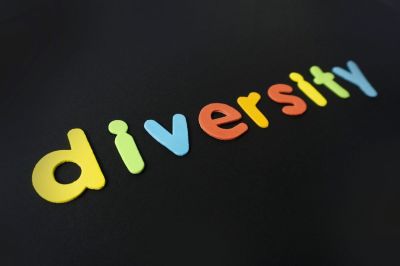Is diversity a biblical goal?

While racial tensions reached a fever pitch in the aftermath of George Floyd’s tragic death, the issue is not new. Two thousand years ago, Paul addressed the issue of race in his letter to the Galatian church when he said, “There is neither Jew nor Gentile, neither slave nor free, nor is there male and female, for you are all one in Christ Jesus” (Gal. 3:28).
Appropriately, the church has taken a leading role in the effort to bring unity and racial reconciliation where it is needed. In some cases, this has led some church congregations and denominations to place a special emphasis on cultivating racial diversity in their midst.
For example, the Acts 29 church planting network, started by Mark Driscoll and now led by Matt Chandler, has a Diversity Initiative. Southeastern Baptist Theological Seminary has a Kingdom Diversity Initiative. Hillsong Church says they are “committed to providing strategic direction to enable us as a global church to make progress in racial diversity and equity.” Various Christian colleges have published their “Christ-centered rationale for Diversity, Equity, and Inclusion.”
All this emphasis on diversity begs the question: should church congregations be making a concerted effort to be racially diverse?
There are many things Christians are commanded to do, including loving one another (Rom. 13, John 13), honoring one another (Rom. 12:10), accepting one another (Rom. 15:7), being at peace with each other (Mark 9:50), serving one another (Gal. 5:13), carrying each other’s burdens (Gal. 6:2), and forgiving one another (Eph. 4:32). There are no exceptions for people who don’t look like you, talk like you, or think like you.
But nowhere does Scripture command us to have racially diverse congregations.
Of course, this does not mean racial diversity is wrong. It can often be helpful. But it is not specifically a moral good because nowhere does God say that diversity is a virtue in and of itself.
It is beyond dispute that the Kingdom of God is racially diverse. Not only are the world’s 2.3 billion Christians spread all over the planet, but John’s vision of Heaven in Revelation gives a glimpse of what the diversity of Heaven looks like: “After this I looked, and there before me was a great multitude that no one could count, from every nation, tribe, people and language, standing before the throne and before the Lamb. They were wearing white robes and were holding palm branches in their hands. And they cried out in a loud voice: ‘Salvation belongs to our God, who sits on the throne, and to the Lamb’” (Rev. 7:8-9). Heaven is diverse.
This vision of different people praising the same God is beautiful and even aspirational, but it does not mean that racial diversity is inherently virtuous. We know this because if that same group of people pictured in John’s vision were chanting “Hail, Satan!” it would be no consolation that they are a diverse assembly. What we intuitively understand — but must say — is that racial diversity can be a sign of something good but is not something good in and of itself. Racial diversity could be a sign of discipleship, but is not a form of discipleship.
In one sense, this is simply practical. It would be silliness, for example, to tell a group of Christians in remote places like the jungle of the Congo or the mountains of India that they need more racial diversity. In some places, racial diversity isn’t realistic. But this point is not merely practical. If we emphasize the secondary over the primary, we end up with the wrong goals.
The primary goal for Christians is to love God and others. We rightly see racism as a violation of God’s commandment to love our neighbor (Mark 12:31) and may see racial diversity as evidence that racism is not present. This is logical, but there is a risk. The emphasis on racial diversity as the antidote to racism may create a situation where we see racial diversity not as evidence of love but as a form of love. As a result, diversity has become an end unto itself.
The problem with confusing diversity for the sake of diversity with real, biblical love is that it puts the cart before the horse. In a world where diversity is a form of love, communities that are “diverse” are inherently better than those that are not. In a world where diversity is a form of love, we inevitably value people differently based on their ability or inability to contribute to our diversity. Christians can’t subscribe to this mindset. In addition, while efforts to be diverse are nearly always well-intentioned, the temptation to appear diverse can easily become self-centered. Only God knows when we’ve crossed the line from trying to love people well to trying to look good, but the line exists.
Consider an analogy from Acts 5. Ananias and Sapphira were a couple in the early church who made a public display of generosity. However, they intentionally misrepresented their gift, and God put them to death for it (Acts 5:1-11). Generosity is a good goal; wanting to look generous in the eyes of our fellow man is not. In the same way, it can be good to be diverse but not if we are merely wanting to look diverse. If God is more concerned with the condition of our hearts than the complexion of our skin — and He is — we should be, too.
What every Christian can do, in all times and all places, is love people the way Jesus does. In communities where people look different, the love of Jesus will transcend racial barriers and bring people together. In communities where people look the same, the love of Jesus will transcend other boundaries, including class, politics, age, or sex.
None of this means that concerns about racism are invalid or that the Church should not be part of the solution. Our call to seek justice, provide hospitality, and care for the marginalized will create a community that some might call diverse. In addition, when people share pain and frustration about the brokenness of the world, we should be slow to speak and quick to hear. But racial diversity that honors Jesus will never be achieved by making it our primary objective. It will, however, inevitably develop as Christians follow the example of Jesus. Seeking Jesus will lead to racial diversity; seeking racial diversity will not lead to Jesus. Jesus’ words in the Sermon on the Mount seem to apply here: “Seek ye first the Kingdom of God and His righteousness and all these things will be added unto you” (Matt. 6:33).
No doubt, the emphasis on diversity is well-meaning, but it comes with real risks. If we pursue diversity with more passion than we pursue love, we are very likely going to miss both.
Originally published at the Family Research Council.
Joseph Backholm is Senior Fellow for Biblical Worldview and Strategic Engagement at Family Research Council.



























